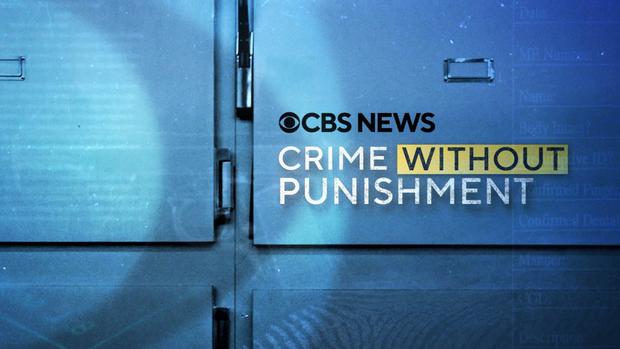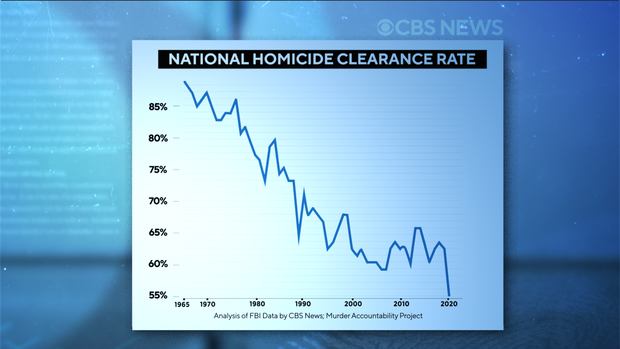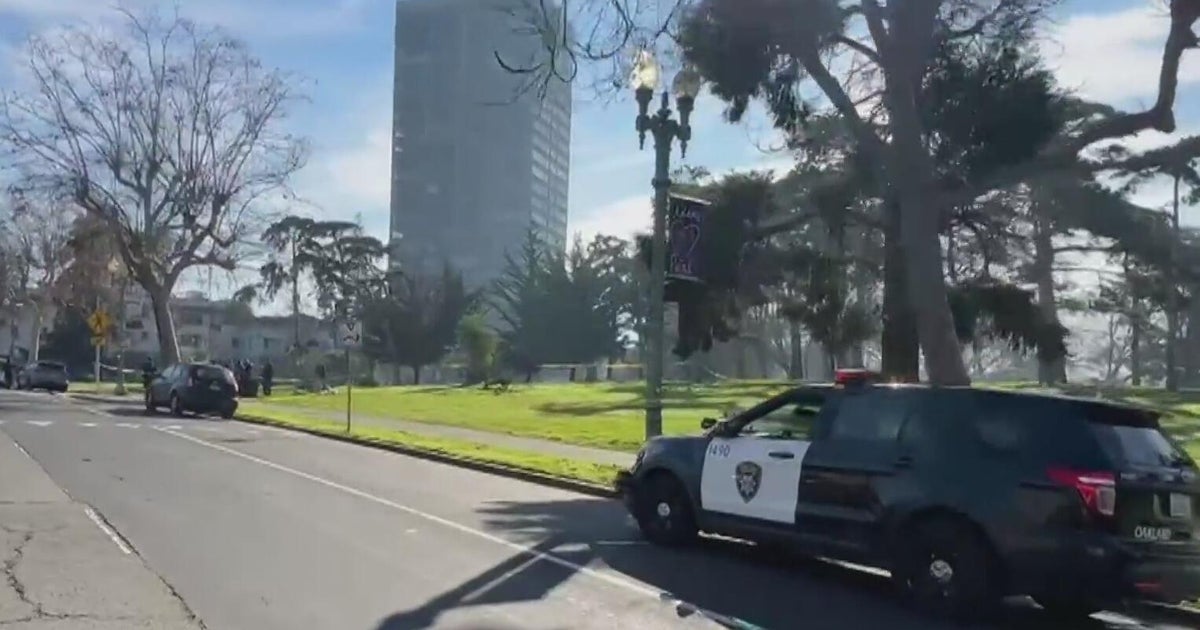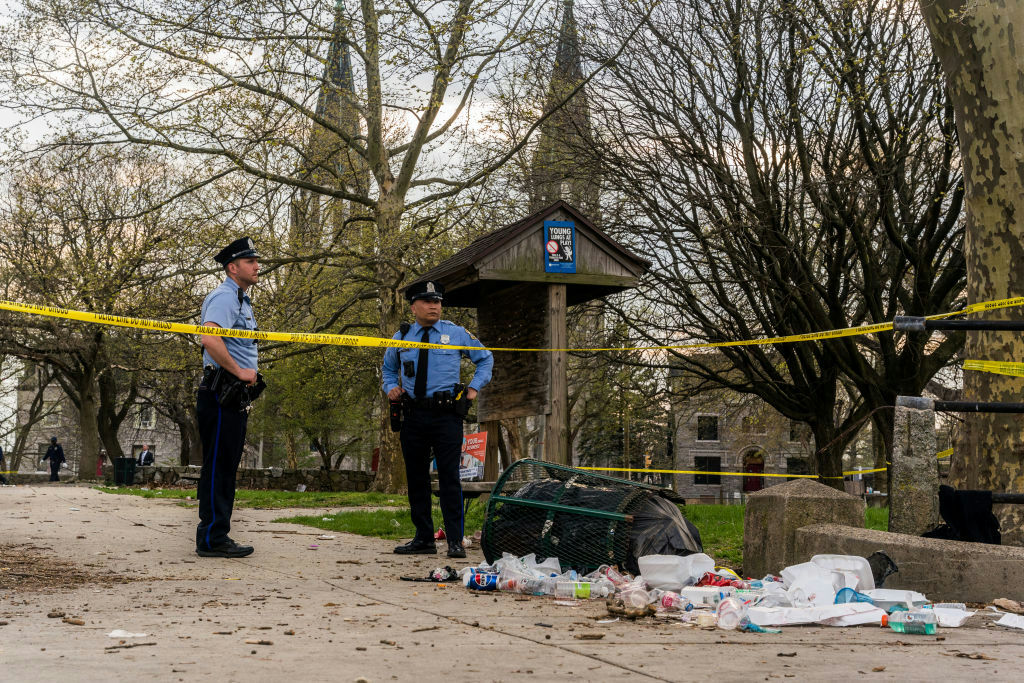Oakland, San Francisco see disheartening difference in homicide clearance rates
In a collaboration with CBS News, KPIX 5 is examining a crime often going without punishment in our country. Barely half of murder cases in the United States get solved. The national homicide clearance rate is at an all-time low, according to FBI data.
In the mid-1960s, more than 90% of murders were solved, generally resulting in an arrest. By 1990, the percentage fell into the 60s. Then, by 2020 - as the number of homicides surged - the national clearance rate dropped to about 50% for the first time ever.
The analysis also discovered a difference by race. The national homicide clearance rate for White victims keeps improving, while the rate of solving murders for Black and Hispanic victims is much lower.
So what's happening locally? Our investigation discovered two different clearance rates on opposite ends of the Bay Bridge, one better and one worse than the national average
"It's devastating," said Elaine Marks-Bell. "It's devastating to see how my brother went out. And there are no answers to it. No answers."
Marks-Bell lost her brother on Christmas Day, 2019. Jimmy Marks, who was 61 years old at the time, was shot and killed on a sidewalk along East 16th Street.
Initially, the police told the family they had leads, but no one came forward as a witness. Two and a half years later, the family is still waiting.
"You're just kind of out here wondering," Ralecia Marks-Adkins said of her uncle's murder. "'Where is the killer?' What happened? Is this going to be unsolved forever? You just don't know anything, and that is the part of the grief that just stays there."
The Marks family is hardly alone. As homicides have risen again in Oakland in recent years, the clearance rate has fallen. In 2020 it dropped to about 47%, and below the national average of 51.6%.
The numbers across the Bay, however, are very different. With roughly twice the population of Oakland, San Francisco sees about half as many homicides. And the clearance rate has risen to 75%, well above that national average. For that, SFPD credits two things.
"We have to have the staffing to do that," San Francisco Police Chief Bill Scott said during his most recent crime statistics briefing in January. "We also have to have community support. And there's too many people to thank in terms of the support we get from many members of our community."
"And what I'm acknowledging is that it won't be solved just by law enforcement," Oakland Police Chief LeRonne Armstrong said in July of 2021, as homicides spiked in his city. "This solution will have to be a collaborative approach."
Both the Oakland and San Francisco Police departments declined to speak on camera for this story, but Oakland police have long said they need more community help to both prevent and solve homicides.
"People don't talk," Marks-Bell said of witnesses' reluctance to come forward. "People don't talk. They are afraid to talk."
"It's hurtful," Marks-Adkins said of the lack of help. "But it's not shocking that that's the way it happened, considering the relationship between the police and the community over there."
"We're talking about using technology like surveillance cameras, deploying those," Oakland Councilmember Loren Taylor said of the city's effort to increase clearance rates. "We're talking about addressing the witnesses, bringing more resources to witness protection, to support folks. Incentives to come forward."
Taylor says reducing violence will take long-term investments in the community. Short term, he says solving murders can be its own form of violence prevention.
"Studies show that when we have a higher solve rate of these crimes, you have less retaliatory gunfire," Taylor said. "And it limits the increase in actual homicides. So it all ties together."
The Marks say the passage of time has been discouraging, but they're trying to stay hopeful that police, or someone in the community, will eventually move the case forward.
"Even today, it's hard to even talk about," Marks-Bell said of her brother's unsolved killing. "There's just no justice for people that are trying to do the right thing out here."
Complete coverage of "Crime Without Punishment' from our CBS stations across the country and CBS News is available here.








